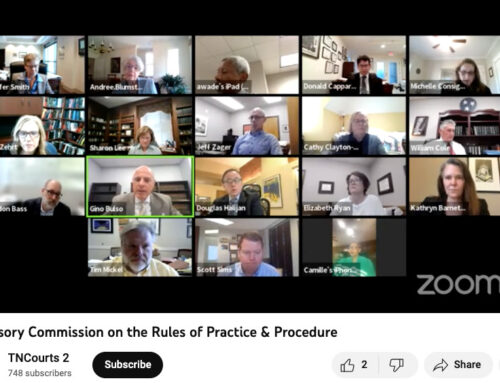Will Purdue Pharma be able to keep Tennessee’s opioid lawsuit sealed?
The lawsuit by the state of Tennessee against Purdue Pharma in a Knoxville Circuit Court yesterday was filed under “temporary” seal to allow the company time to seek a protective order to keep it from the public’s eye.
Will the company be successful?
Tennessee is not the only state suing the OxyContin maker. Purdue Pharma is facing 22 state lawsuits to date that, similar to this one, allege the company misrepresented the drug’s risks, broke consumer protection laws and helped cause an expensive public health crisis now being shouldered by taxpayers. It also is facing hundreds of other civil suits.
Attorney General Herbert Slatery filed the lawsuit under a 10-day temporary seal to allow Purdue Pharma time to file a protective order. But the state also argues in an accompanying memorandum that the judge should not allow the 270-page lawsuit, which contains “detailed factual allegations concerning the Defendant’s conduct” to remain under seal past the 10 days.
Slatery says the lawsuit “against one of the largest branded manufacturers of opioids” is “one of the ways the State seeks to address the opioid epidemic — one of the most significant public health crises in the State’s history.”
“The State believes its Complaint should be public because there is no compelling reason to withhold it from the public. A time period beyond ten days is not justified because the State is a public litigant, the Complaint involves a matter of immense public concern, and the Defendant in unlikely to show specific harm as a result from disclosure of the Complaint.”
The lawsuit “contains references to documents and information that Purdue Pharma asserts contain highly confidential, proprietary, or trade secret information,” the memorandum states.
Purdue has sought, sometimes successfully, to convince judges to keep information filed in courts confidential. The Los Angeles Times managed to get a hold of documents under court seal anyway, and wrote about what was in them in this story a year ago: “‘You want a description of hell?’ Oxycontin’s 12-hour problem”
In 2016, a circuit court judge in Kentucky ordered that records sealed as part of that state’s lawsuit and settlement with Purdue Pharma be unsealed. Purdue Pharma appealed the decision, and the Kentucky Court of Appeals has yet to rule.
In Tennessee’s filing, it says its complaint “contains detailed allegations that the Defendant violated the TCPA (Tennessee Consumer Protection Act) by making a series of unlawful safety, comparative, and benefit claims about its opioid products, failing to disclose its material connection to third-party pain advocacy groups it substantially funded, and unfairly targeting vulnerable populations like the elderly.”
The filing then lists 24 specific allegations against Purdue Pharma’s “false, deceptive, and/or unsubstantiated claims about its opioid products” and alleges that Purdue Pharma failed to comply with a 2007 judgment with the state requiring it to stop “sales promotion to prescribers whose practices showed indications of abuse or diversion.”
The state also states that its detailed allegations describe how Purdue Pharma “fueled a public nuisance in Tennessee by significantly interfering with the commercial marketplace and endangering the life and health of the State’s residents.” The allegations describe how Purdue Pharma “had knowledge in many cases of signs of abuse or diversion from the Tennessee providers and pharmacies that its sales representatives continue to make sales calls and ignore red flags.”
The Tennessee case is set to be heard by Knox County Circuit Court Judge Kristi Davis.
(This story was updated June 12 to correct a date reference to a Kentucky case.)





